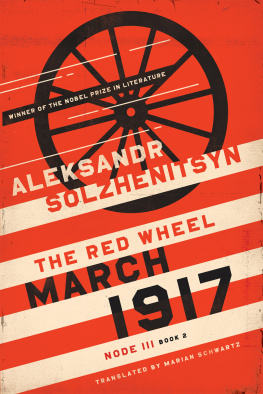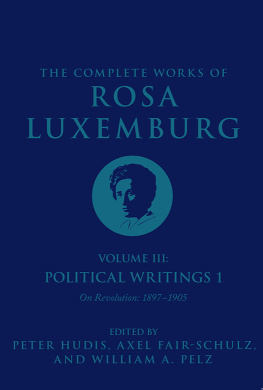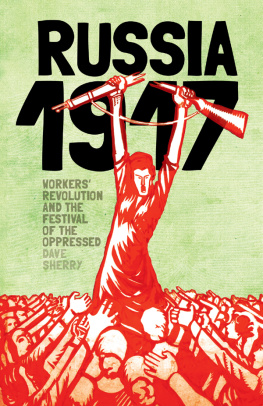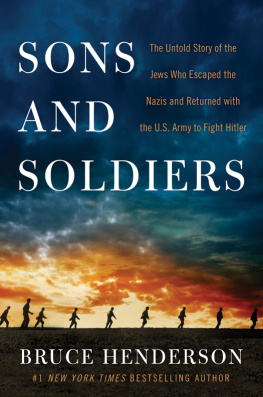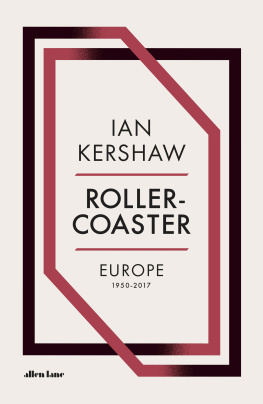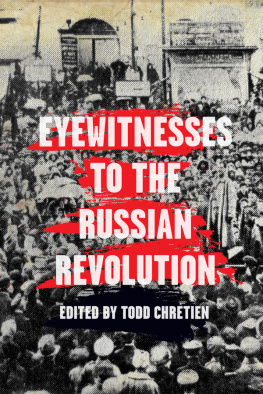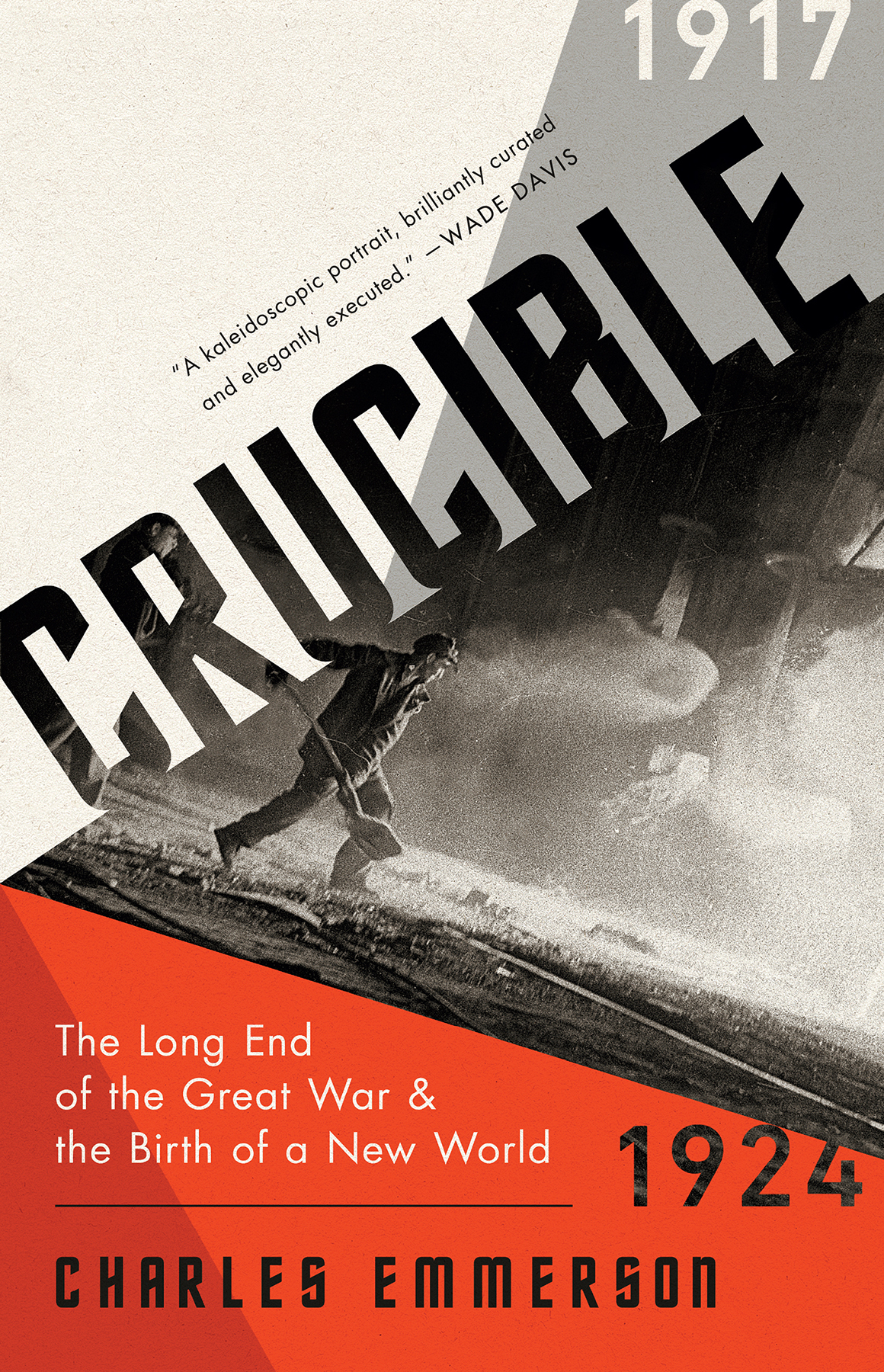Copyright 2019 by Charles Emmerson
Cover design by Pete Garceau
Cover image copyright Sputnik/Alamy Stock Photo
Cover copyright 2019 Hachette Book Group, Inc.
Hachette Book Group supports the right to free expression and the value of copyright. The purpose of copyright is to encourage writers and artists to produce the creative works that enrich our culture.
The scanning, uploading, and distribution of this book without permission is a theft of the authors intellectual property. If you would like permission to use material from the book (other than for review purposes), please contact permissions@hbgusa.com. Thank you for your support of the authors rights.
PublicAffairs
Hachette Book Group
1290 Avenue of the Americas, New York, NY 10104
www.publicaffairsbooks.com
@Public_Affairs
Originally published in 2019 by Bodley Head in the United Kingdom
First U.S. Edition: October 2019
Published by PublicAffairs, an imprint of Perseus Books, LLC, a subsidiary of Hachette Book Group, Inc. The PublicAffairs name and logo is a trademark of the Hachette Book Group.
The Hachette Speakers Bureau provides a wide range of authors for speaking events. To find out more, go to www.hachettespeakersbureau.com or call (866) 376-6591.
The publisher is not responsible for websites (or their content) that are not owned by the publisher.
Library of Congress Control Number:2019948260
ISBNs: 978-1-61039-782-7 (hardcover), 978-1-61039-783-4 (e-book)
E3-20190924-JV-NF-ORI
For E. W
All else is folly
Explore book giveaways, sneak peeks, deals, and more.
Tap here to learn more.

No one believed a modern war could last this long. But by 1917 Europe has already been at war for three years. The fabric of the Continent has been torn up. Now it begins to collapse from the inside. This book tells the story of that collapse, and the energies unleashed which made a new world to replace the old.
In Petrograd a fire is lit. People crowd the streets. The Romanov realm begins its journey into oblivion. The Tsar is packed off to the Urals, to spend more time with his family, his wood-chopping and his God. A Russian exile crosses war-torn Europe to make a triumphal entry into Petrograd at the Finnish railway terminus. Peace now! the crowds cry. They cannot expect what happens next: another offensive, another revolution, anarchy and a civil war loosed across Eurasia.
November 1918: an armistice is signed to end the Great War on the Western Front. The shell-shocked begin their journey home. Yet even as the ink is drying on this promise of an end to Europes nightmare, fresh conflicts and upheavals are in preparation elsewhere. True peace does not return for years to come. Risings in the Middle East are crushed. A massacre in India tarnishes Britains imperial prestige. In Europe, new militia armies arise, unbound by the old rules of conflict. The peacemakers of Versailles draw lines on maps. Meanwhile, the Continent slips out of their control. Politics takes a violent turn. Modernity and barbarity develop side by side.
Defeated German soldiers return from the front and are sent to suppress a Communist rising in Berlin. Bodies bob along the river Spree. A dismal period in German history now begins, punctuated by plots, coups and foreign occupation. The country swings wildly from economic depression to boom to immiserating inflation. Nothing is solid any more; old hierarchies are upended. A lowly army field-runner is trained to give rousing speeches to the masses to prevent a slide to Bolshevism. Soon he is mixing with the generals who lost the war, and railing against the Jews.
The established order is swept away. Women are given the vote. Emperors, Kings and generals depart furtively on midnight trains or submarines. People who were nothing are catapulted into prominence. Europe explodes into a frenzy of creative energy. The real becomes sur-real. Marching tunes are syncopated into jazz. A former patent clerk from Switzerland becomes an instant celebrity when his theory of relativity is proven to be true. Time and space lose their fixedness.
Civilisation is released from its pre-war moorings. People search for meaning in the wreckage. Agitprop trains criss-cross Russia, spreading the gospel of revolution. A playful Italian prone to grand flourishes takes a train to Rome to proclaim a new era for his country. The city runs out of flowers to strew in front of its saviour. In the back streets, fascist violence ensures the socialists understand who is now in charge.
Paris bustles with new arrivals. Armenians from the Ottoman Empire and Russian aristocrats seek refuge. Americans armed with dollars live it up in Montparnasse for a pittance. A boy from Chicago who set out to see the world as a reporter starts writing literary sentences in a Paris atticthe shorter the better. There is a surge in Frenchwomen taking vows as nunsthere are no husbands left to be had. The government plans for the next war while its people mourn the last.
In Central Europe, the hole left by the Austro-Hungarian Empire is filled with plebiscites and martinets. The father of psychoanalysis advises his disciples to withdraw their libido from the Habsburg cause: seven centuries of their rule come to an end. In Budapest, a muckraking journalist becomes a fiery Red commissar, only to be ousted by an admiral without a fleet. An Italian writer marches into an Adriatic seaside town at the head of a ragtag band of troops. A soldier-revolutionary released from a German jail becomes leader of a resurrected Poland. Vienna survives on starvation rations.
Having saved the Continent from the overweening ambitions of the Kaiser, America turns its back on old, warring, disease-ridden Europe. The President, welcomed as a hero abroad for his vision of a new era of peace, loses the fight at home to take the United States into the League of Nations. The country turns its mission inwardsfrom saving the world, to saving itself. Red scares spread from New York to Los Angeles. The sale of alcohol is prohibited. Black American soldiers who have done their duty in France return to an uneasy welcome. Lynching carries on across the South. The black fight against injustice gears up.
And at opposite ends of Europe conflict continues unabated. In Ireland, atrocity and reprisal mar a nations struggle for independence. The price of freedom from British rule is civil war and a divided island. In the east, a tangle of peoples fight for their share of what was once the Ottoman Empire. A heartbreaking, raki-drinking army officer crushes Greeks and Armenians who claim a historic homeland in Anatolia. He renames himself father of the Turks and sets his country on a new path for the future.
It is seven years since the fire was lit in Petrograd before the crucible burns out. No new wars are fought in 1924: a decade since the Great War began, six years since the armistice, five since Versailles. The Russian exile who wanted to paint the globe red and the American President who wanted to make the world safe for democracy are both dead. New figures have arisen to take their place. Dreams of renewal are twisted into new fantasies of power. The Furies of war fade back into the past.
An uneasy peace settles over the European Continent, scarred by its experiences and purged of its old certainties. The world is forged into the shape of the twentieth century.


